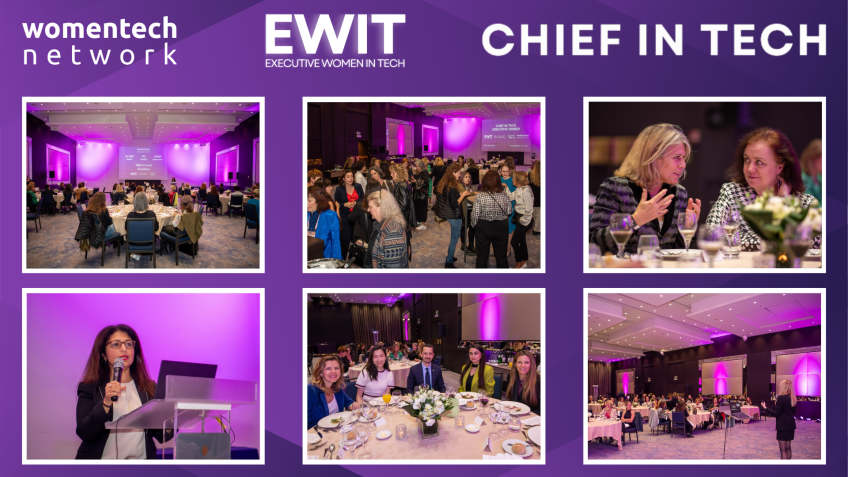Tipping Point: Why women are well positioned to thrive in the Future of Work
Ellen Di Resta
Managing DirectorReviews
Unlocking the Power of Invisible Work: Tremendous Opportunities for Women
Welcome, and thank you for joining today to discuss an interesting yet neglected corner, the "invisible work". I am Ellen Greta, focusing on how women can harness this enormous value derived from our economy's hidden aspects. Let's delve deeper into the topic.
The Case of Non-Promotable Tasks
Years ago, during my tenure as an innovation consultant, I faced an interesting dilemma resulting from non-promotable tasks. These are underrated roles that offer immense benefits to the company but typically don't lead to professional elevation.
Invisible work
With duties like managing extra committee assignments and challenging clients, this "invisible work" frequently becomes overhead, remaining unassociated with the organization's primary mission. Despite this, it cannot be neglected, as it plays a pivotal role in creating and maintaining the harmony and smooth functioning of the company.
The tendency among women
An intriguing observation was that women engage in these tasks 200 hours more per year than men. Despite their crucial contributions, these unsung tasks went unnoticed and underappreciated, usually because they were not directly related to the primary mission of the company.
Intangible Assets and the Value they hold
Surprisingly, these non-promotable tasks sounded eerily similar to intangible assets - the most significant contributor to the economy's value. Apple's market cap in 2018 is a perfect example, where 91% of the $1 trillion was attributed to intangible assets such as vendor relationships and employee relationships.
Characteristics of Intangible Assets
Intangible assets are characterized by their sunk costs, spillover benefits, requirement for synergies, and great rewards. They need to be integrated into the company to move beyond being considered overhead or non-promotable tasks.
The Future of Work – Impact and Trends
According to the World Bank, advanced cognitive skills, socio-behavioural skills, and skill combinations promising greater adaptability are the most in-demand skills in the future work. Fascinatingly, women are well-positioned to excel in this field, as they currently outpace men in obtaining advanced humanities degrees that fine-tune these critical thinking skills.
Communication and Presentation
However, success doesn't just rely on possessing skills and performing tasks well. It's equally important to communicate the value of what you bring to the table effectively. Here, a common stumbling block for women is often the perceived lack of power in their communication styles.
The Power of Truth box
We have this so-called "truth box," representing how men and women typically describe their accomplishments. While men tend to stretch their stories beyond the actual truth, women usually undervalue their achievements by focusing on a smaller portion of the truth.
The key to success
The key to seizing opportunities lies in shifting this pattern. Having the language to describe your work and its value to the company, and the conviction to present it forcefully, is imperative. Reshaping the way we communicate the truth not only changes the perception of our accomplishments but also empowers us and others to see the significant value in our work.
A Call to Leadership: Recognize and Reward Invisible Work
Leaders must recognize the invisible work carried out in their companies, understand where the actual value is being created, and revisit how they reward these valuable contributions. Neglecting these intangible assets or underinvesting in them might be hampering the success of your company.
In Conclusion
As we strive to change work's value, women are perfectly poised to thrive. Let’s all become part of this change and start sharing our stories and experiences on invisible work and its value. Let's bring these conversations out of the realm of academia and into our workplaces. Your insights are invaluable — do share them on my recent LinkedIn post. Thank you!
Video Transcription
OK, and we'll get started. Now, thank you for attending. My name is Ellen Greta and I focus on the invisible work that underlies most of the value created in our economy and how it presents a tremendous opportunity for women.Years ago, I had an experience that I think many of you will find familiar. Sadly, I was pushed out of a job that I loved and was really good at, for reasons that many of you probably experience every day. The way it happened for me is I had just started a job as an innovation consultant and it was the perfect job for me at the time. The only problem was that I had a boss who was, let's just say a little bit dysfunctional, for example, in innovation work, we're often working with concepts that are brand new and they're hard to articulate at first. And one day he said to me, you know, you and I say about the same things. But when I say it, it sounds brilliant and when you say it, it just sounds stupid. Yeah, that's the guy. But for the most part, I was able to ignore it because I love the work and I love my clients, but eventually his, uh, behavior became a bit too disruptive for many people in the company and, uh, a big headache for the coo to manage.
And so the coo came to me and said, um, I'd really like to have you manage the group, but I would need for you to report to him still. And I said, are you kidding me? There's no can work. First of all, I don't want to manage people full time. And, and I certainly don't wanna be a buffer between him and everyone else on the team. And the coo said, well, you know, if you don't wanna do that, I can dissolve the group, but I can't get rid of him because he's a really good rainmaker and I didn't want him to dissolve the group. And so I said, ok, I'll do it, but I wanna keep some client work and if things go wrong, you need to back me up. And he said, deal, I got you these things start out with good intentions. But they are a topic of a recent book called The No Club because what I didn't realize is that at the time, I was being tasked with a heavy dose of what the authors call non promotable tasks and non promotable tasks are things that greatly benefit the company, but they don't lead to promotion.
So they're things like taking on extra committee assignments or uh managing the difficult client. These are things that a lot of people do. But, you know, they become overhead and they become essentially invisible because they're not really related to directly related to the primary mission of the company.
But even though a lot of people do them, the authors found that women spend more than 200 hours per year on these tasks than men. In my case for the first year or so, things went pretty well. I was growing the team. I was adding new higher value services and my boss was bringing in new business. And after about a year, things started to change. Essentially, I was getting in the way for my boss doing what he wanted to do. And it frustrated him to have to go through me to get things done with from other people in the team. And if he went around me, it, I would hear about it and asked to stop the problems he was creating. And then the worst thing happened, he gave me a bad performance review and it was the first bad performance review I had ever had in my life. And I said, what's with this? Like, explain this to me. And he said, well, the problem is you're not as billable as you used to be and you don't bring it in as much new work as you used to be. And I said that is literally my job description. I'm the one who's building the talent and increasing the value of the services we offer. And you're the one that's selling the work. And I'm also managing client relations on top of that and, and it's working fine. They're, they're great.
And he said, I know and it's valuable to me, but it's hard for other people in the company to see. And so because it's hard to explain, I, I just can't defend you. In the end. There was no way I was gonna win that battle. But I know that this guy, his behavior was his own issue. And I get that it really had little to do with me personally, but I left soon after because I, I just didn't need this. But it's a perfect example of why women are often given the advice to just say no to these non promotable tasks. But in my opinion, why should we, they're valuable to the company and they allow us to do things like to gain new opportunities to do new skills. And like, I wouldn't have known that I was gonna be good at managing people or that I even liked it. But it really bothered me that I never had the concrete evidence and argument to make to directly link the work I was doing to the value added to the company. And so ever since I've been looking for ways to describe that work, that invisible work that all of us do.
And recently I found it Pascal and Westlake have been writing for years on the fact that the greatest value in our economy is created from intangible assets and the way they describe intangible assets, they have a really good example that I'll share. They said that in 2018 Apple's market cap had just hit $1 trillion. It's a lot more now even. But at that point, it just hit $1 trillion and of that $1 trillion 9% of it they could attribute to traditional tangible assets. So the property plant and equipment types of things that if you go out of business, you can sell them, the other 91% was attributed to intangible assets. These are things like vendor relationships and uh managing the external app, developer, network and internal um employee relationships that make it easy to get work done between departments and software algorithms. Now, these things sound not unlike the in the non promotable test that we were talking about, but what's different is that to elevate them beyond non promotable tasks and beyond being considered overhead, they need to be integrated into the company. And so these are the things that you do when you think about what are these intangible assets and they characterize them by saying they, they are some costs and meaning you can't get the money back for them that you've invested, they offer spillovers so that other people can actually make money on these assets.
And so that's like with the app net, with the App Store, the app developers actually make money. They uh require synergies. They're the whole is greater than the sum of the parts and they are more valuable together than they are. It's hard to define the exact value that any one of them contributes, but they offer great rewards. It's easy for us to think about platform companies and like Air BNB and like the App Store, how they achieve great scale. But even in a professional services company, we were able to scale the value of and of consulting billing hours by being able to charge more for the same amount of work because the actual services we were offering were worth more. So when I said these sound like, you know, um the non promotable tasks they do and to integrate them to add greater value, you really do need to integrate with a level of technical understanding of the mission of the company. So if you are managing that uh vendor network um at a company like Apple, you really need a level of technical understanding so that you can guide those relationships in the right direction. But what elevates um this value that you're creating and to really talk about it the right way requires very complex thinking skills.
And these are going to be very important in the future to the extent that the World Bank uh estimates that advanced cognitive skills, socio behavioural skills and uh skill combinations that for greater adaptability are gonna be um among the most in demand skills in the future of work.
And women are well positioned right now to do well in that area. Because even today, they outpace men in their attainment of advanced degrees in the humanities because it's in the humanities where you really hone in on the critical thinking skills to really tie this together, but just having the pieces on their own isn't enough. You really need to communicate the value that you're bringing. And this is actually where women have been falling short since the nineties, Deborah Tannen has been researching the ways men and women communicate in the workplace. And she noted that women tend to communicate in a way that's perceived in a more approachable way and in a more cooperative way. However, their communication styles are also um perceived to be much less powerful than men's and an executive coach that I know I talked about how in the years he had spent coaching men and women. He noticed a big difference in how they described their accomplishments. He called this the truth box and he said if this box represents the truth, this box that stretches outside the truth is the to the story that men tend to tell about their accomplishments in this little teeny box inside the truth.
That's, that's really a small portion of the truth. This is the story women tell about their accomplishments and he could not understand why women undervalued their accomplishments to a much greater degree than men overvalued their accomplishments. But to me, this made perfect sense.
We know it's valued in our companies. We know if we're doing work that's not directly on the mission of the company that it's valued a little bit less. Why do we want to draw attention to it? But I can tell you if I had had the language to describe the work that I was doing in more concrete terms and the value it added to the company when I was in that performance review with my boss, you can bet I would have been pushing back much more forcefully than I was and I would have had the confidence to do it with conviction and I can safely say that it would not be perceived as lacking power.
Now, this presents a unique challenge for leadership because chances are the people in your company are being rewarded for the specific tangible outcomes that they create. But I would challenge you to think about where is value really being created in your company and who's doing that work.
And if your company is not as successful as it could be, maybe not only are you undervaluing these intangible assets, maybe you're not investing enough in them in the first place. Right now, these ideas are mainly in the world of academia, but I call myself a P academic. And to that end, I take academic ideas and I apply them to my work and bring them to life. I would like to invite you to just share your reactions. I put up a post on linkedin and I want to hear your experiences. Does this resonate with you? Does it, is it um even anything like what you experienced today, are you doing in doing great work, creating intangible assets that's only being counted as like less than other work. I really wanna know because once we can figure this out and really put it to work on a broad scale, we can really change the way work is valued and women are well positioned to do well. So I really wanna hear your thoughts. Thank you.







No comments so far – be the first to share your thoughts!